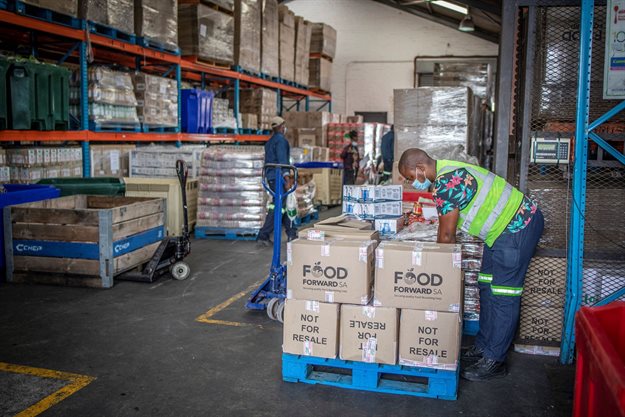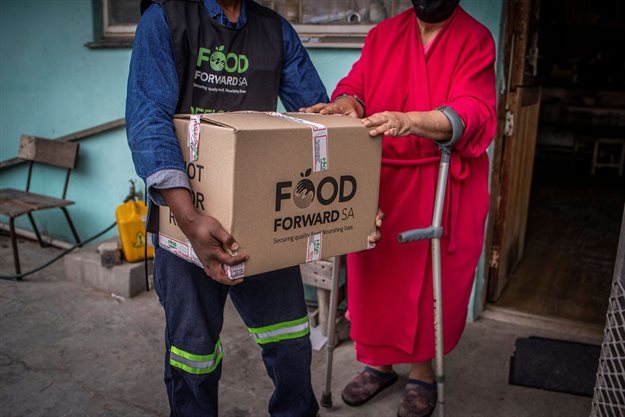
Related

Collaboration is what? Fundamental to achieving inclusive growth in South African mining
Shamiso Chideme and Richard Pfaff 10 hours





Top stories






More news















Organisations like FFSA are addressing the food crisis in SA by providing 475,000 meals every day, but it is not enough. It needs food retailers, manufacturers and farmers to donate their surplus food to the organisation instead of sending it to landfill. Currently, more than 10 million tonnes of food is taken to landfill every year.
FFSA recently conducted an independent study to measure its impact. The report found that for every R1 donated, FFSA is able to create R98 worth of impact and for every kg of food donated, R117 worth of food value is generated.
Says Du Plessis, “Non-profits bring better education and nutrition to under-served communities. This NPO sector is a vital driver for change in our unequal society. Unfortunately, this impact is not measured as many charities don’t keep reliable records, don’t manage their finances well, don’t have good governance in place and so can’t demonstrate their impact and are not transforming viable contributions into social change. To the whole sector’s detriment, this causes corporate’s CSI to be regarded as a charitable segment of the economy, where benevolence is granted to organisations that seem to do some kind of social good,” he says.
The Social Return on Investment (SROI) report, done by independent firm Impact Amplifier, evaluated the impact of FFSA’s foodbanking model and showed how foodbanking brings about social change. During the assessment period, 1 March 2019 to 29 February 2020, FFSA distributed 5,082,308kg of food to its network of beneficiary organisations, creating economic value of R588m and generating more than R1.6bn worth of SROI.

FFSA sifts the good quality food from donated surplus food and delivers it to more than 1,000 registered beneficiary organisations (BO), like care homes, orphanages, community soup kitchens, creches, shelters and after-school facilities across the country. These BOs use the food to cook meals for their beneficiaries who are mostly from destitute families earning less than R1,000 per month.
The SROI report assessed 80 BOs across three provinces. It reports that if FFSA were to stop its support, 47% would have to adjust their feeding programme significantly and 41% would have to stop their programmes. 75% reported that they did not receive enough food from FFSA and 97% would like to receive more food from FFSA.
“At the centre of our nation’s deeply-rooted structural inequality are two core problems – poor education and poor nutrition,” says Du Plessis. No-one can learn if they are hungry. For various reasons, 50% of our youth do not complete grade 12. “This translates to escalating skills shortages and unemployment. Due to these low education levels, most people earn meagre incomes and will not be able to afford a sustainable livelihood, their families will go hungry. With business confidence at an all-time low and unemployment (broadly measured) at 42%, South Africa’s inequality gap, the largest in the world, will only widen, leading to further generational poverty for most of our people,” he says.
“Despite its challenges, the NPO sector provides vital services that stave off hunger, support educational and personal development and give vulnerable people a fighting chance. While not sufficiently documented, there are thousands of success stories of vulnerable people who were able to thrive because of receiving the care and support they needed,” says Du Plessis.
Download the SROI study conducted on FoodForward SA’s foodbanking model here.